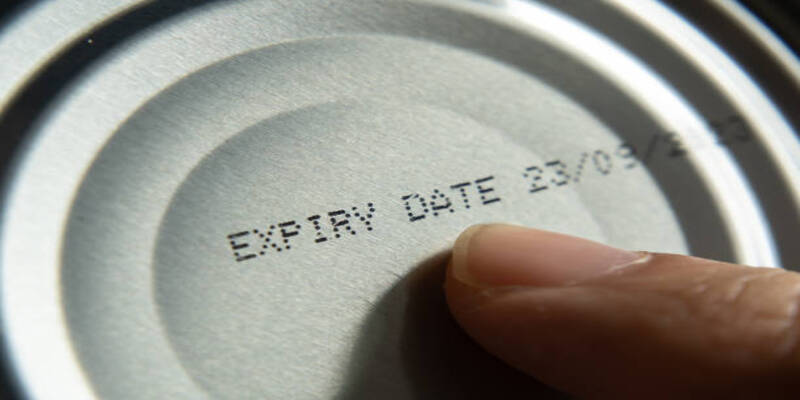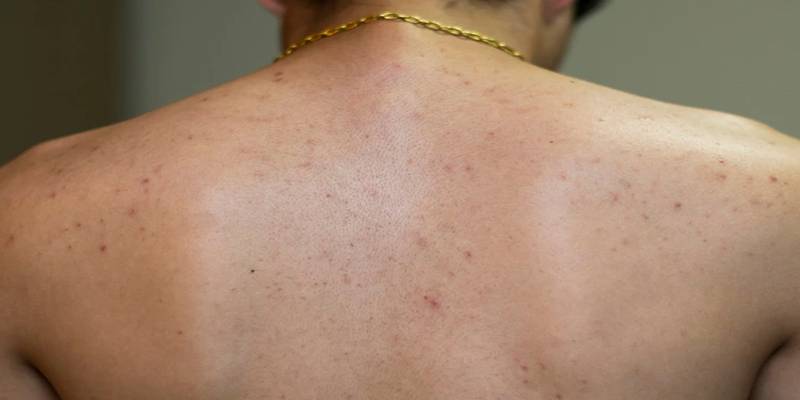Top Methods to Reduce and Heal Back Acne Scars
Dec 03, 2024 By Madison Evans
Introduction
Back acne scars are difficult to maintain and may lower confidence owing to their appearance and texture. Due to their thickness and difficulty to reach, back acne scars are harder to heal than face scars. Regular home care, natural therapies, and professional treatments may decrease scars and improve skin texture. This post covers the best back acne scar treatment methods for smoother, cleaner skin.
Understand Back Acne Scars
Back acne scars form when severe acne causes damage in the skins deeper layers, often due to inflammation. The body produces collagen to repair the damage, sometimes resulting in raised or indented scars. Hypertrophic (raised) scars are common on thicker skin like the back, while atrophic (indented) scars can occur if collagen levels are insufficient during healing. Knowing the type of scars can help you choose appropriate treatment methods, whether for dark marks, raised scars, or uneven texture.
Start with Gentle Exfoliation
Exfoliation is an essential first step for reducing the appearance of scars. By removing dead skin cells and promoting new cell growth, exfoliation can gradually improve skin texture and fade scar pigmentation. For back acne scars, both physical and chemical exfoliants can be effective.
Physical exfoliants like scrubs help gently remove dead skin layers. A long-handled scrub brush can make it easier to reach the back, though its important to use products with gentle beads to avoid further irritation. Chemical exfoliants, such as salicylic acid and glycolic acid, are also effective as they penetrate deeper into the skin, loosening dead cells and enhancing cell turnover. Body washes or leave-on treatments containing these acids can help smooth scars over time if used regularly and carefully.
Use Targeted Topical Treatments

Topical treatments can work well for reducing discoloration and softening the appearance of back acne scars. Ingredients like retinoids, vitamin C, and silicone gel are commonly used for scar treatment and work by addressing both pigmentation and texture issues.
Retinoids, a vitamin A derivative, are known to stimulate collagen production, which can smooth skin texture and diminish indented scars. They also help with cell turnover, which lightens dark spots. Vitamin C is another effective ingredient for reducing pigmentation and brightening skin tone. Its best to look for stable forms of vitamin C, like ascorbic acid, to achieve noticeable improvements in scar color. Silicone gel, commonly used for raised scars, helps by hydrating and softening scar tissue, gradually smoothing the appearance of raised areas.
Keep Skin Hydrated and Protected
Moisturizing is crucial for all skin types, but its especially important when treating scars, as hydration supports cell repair and reduces inflammation. Opt for non-comedogenic moisturizers that wont clog pores or exacerbate any remaining acne.
Sun protection is also essential since sun exposure can darken scars and make them more prominent. Always apply a broad-spectrum sunscreen with SPF 30 or higher, especially if you plan on exposing your back to sunlight. Using sunscreen consistently prevents pigmentation from worsening and helps your skin maintain an even tone.
Consider Natural Remedies
Natural remedies can be useful for mild scars and are a good option for those seeking gentler approaches. While they may not be as fast-acting as professional treatments, several natural ingredients have scar-reducing properties that can benefit back acne scars over time.
Aloe vera is known for its soothing, healing qualities and can help reduce scar by calming inflammation and supporting skin repair. Apply fresh aloe vera gel to your scars and leave it on for 20-30 minutes before rinsing. Honey, especially raw or Manuka honey, is another natural option that hydrates and has anti-inflammatory effects, making it helpful for both healing and scar fading. Finally, rosehip oil is a rich source of vitamins A and C, known for promoting cell regeneration and improving skin tone, and can be applied directly to scarred areas.
Explore Professional Treatments

For more severe scars, professional treatments may be the most effective solution. Dermatologists offer advanced options that target various types of scars and provide faster, more dramatic results than at-home treatments.
Chemical peels are one option that involves applying a chemical solution to exfoliate the skin and stimulate new cell growth. This process can lighten dark scars, improve uneven texture, and reveal smoother skin. Microneedling is another popular treatment where tiny needles create micro-injuries in the skin to stimulate collagen production, which can help reduce the appearance of indented scars. While microneedling can be effective, it usually requires multiple sessions for optimal results.
Laser therapy is highly effective for deeper scars, targeting pigmentation and improving skin texture by stimulating collagen beneath the skins surface. Depending on the type of scars, dermatologists may recommend a fractional laser for smoother skin or a pulsed dye laser for reducing pigmentation. Another option is dermabrasion, a process that uses a rotating device to remove the top layer of skin, which helps improve texture and reduce raised scars. Each of these treatments requires consultation with a dermatologist to determine the most suitable option based on your skin type and scar severity.
Maintain Consistency and Patience
Patience and perseverance are necessary to get smoother, scar-free skin on the back. Visible improvement may take weeks or even months, depending on the severity of the scars and the treatment methods chosen. Regularly exfoliating, moisturizing, and applying targeted treatments will support gradual improvement, while professional treatments offer accelerated results for severe cases.
Maintaining a good skincare routine also helps prevent new acne from forming, which can reduce the risk of future scars. Preventative steps can keep your skin healthy and minimize further damage, such as cleansing the skin gently, using non-comedogenic products, and avoiding harsh scrubbing.
Conclusion
Treating back acne scars gradually with home care, natural therapies, and expert treatments may drastically diminish their appearance. Exfoliation, topical treatments, and sun protection may help improve scars, while expert treatments can help difficult scars.







